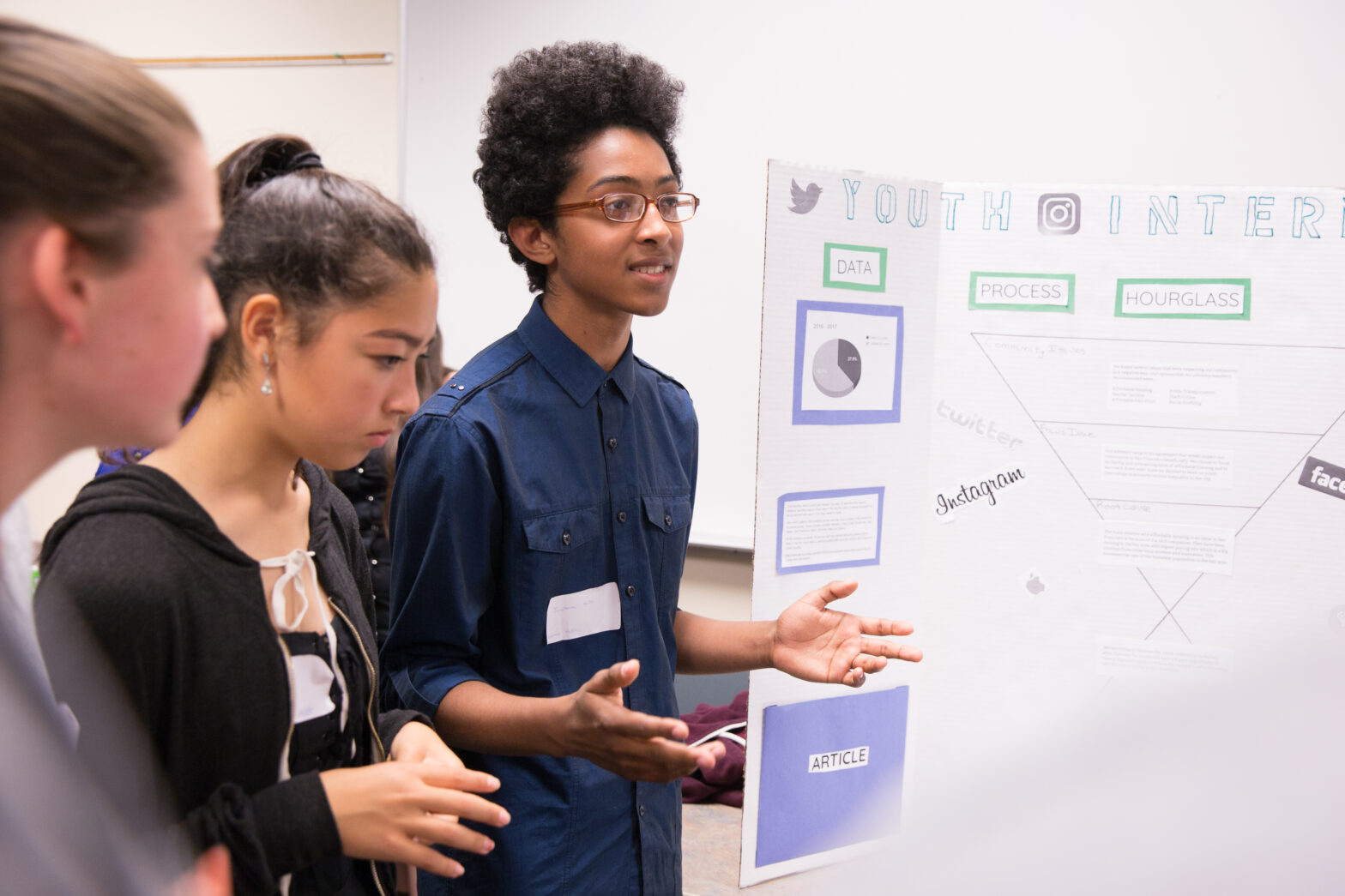GC’s Impact on Students, Post-Programming
At Generation Citizen, we’re in this for the long game. We know that a functioning democracy requires the sustained investment and engagement of its citizens, whether it be an emerging democracy, or one 250 years down the road of its citizen-led experiment. We know that the requisite habits of active civic participation are established early in life. We know that our work demands focus and concentration in cultivating students’ civic knowledge, skills, and dispositions today in order to bear the fruits of their civic engagement and leadership in the long-term.
While we have seen promising immediate results of our programming at the conclusion of students’ semesters, we have not yet been able to precisely measure the impact of our program on students after they leave the classroom. But we’re committed to finding out. Improving civic behavior in the long-term is fundamentally core to our vision of a strengthened democracy.
Before engaging in the cost and complexity of elaborate longitudinal evaluation, we felt the need to explore GC’s near-term impact on students so that we can work to direct resources effectively to longitudinal efforts in the future. In other words, we need to fully understand the impact we are capable of having so that our longitudinal research design accurately captures the breadth of those effects.
Accordingly, last spring we worked with researchers at Glass Frog Solutions and in partnership with teachers and administrators in New York and Rhode Island to conduct a series of focus groups with student alumni to ask about the program’s impact on their lives, beyond the formal conclusion of their in-class GC experiences.
You can read the full report of our methodology and findings here. I want to highlight a few interesting observations on our impact, as demonstrated by the words our students themselves:
Within GC, students went through a profound process of identity development, learning to value their perspectives on personal issues and to believe that they can play an important role in addressing them.
- “I wasn’t aware that so many people weren’t aware of certain problems that I was aware of.”
- “After Generation Citizen, I’ve understood how to solve the problems in my community… not to just say ‘I don’t like it’ but to actually do something and feel like I can do something.”
Students gained crucial critical thinking and communication skills during their projects, in addition to content knowledge about their community issues.
- “In Generation Citizen… you find your problem and then you ask, you go to the root, the root cause, of why is this happening? So when I see things outside in my community or I see things on the news, I ask why.”
- “Now I know that I can talk to other people without getting that nervous.”
New civic experiences tested throughout the semester helped break down students’ fears around future independent engagement.
- “You had to put your mind together with your classmates, instead of always relying on the coach [or teacher] for you.”
- “I was a part of the phone call committee [during my project], so I feel like if I was not a part of this committee, never would I ever have called New York 1 [local news station], or told other people “yeah, you should call!” (while working on a non-GC campaign later in the year)
We’re encouraged by these reflections and eager to build students’ feedback into improving our program and deepening relationships with our alumni in the future. It’s clear from our conversations that middle school students are still processing their GC experiences within the context of their particular class focus issue. Older students are thinking more broadly about civic participation beyond their class’ action.
It’s clear too that all students could benefit from a shared vocabulary and understanding around the civic behaviors that we hope to inspire in our program and from more opportunities to engage with other civically active youth and adults outside of their classroom walls. We are using all of these ideas to guide our future program and evaluation design.
We are committed to building out a longitudinal evaluation component to our work to track students’ civic behavior long after our young people leave their Generation Citizen courses. These focus groups were a crucial first step towards building this longitudinal component. In the coming months, we will be working to strengthen our alumni community, work to more specifically define the behavior we wish to inspire in the long-term, and begin to build out actual survey mechanisms.
In the meantime, we wish to thank everyone involved in the development and execution of this project, including our research partners at Glass Frog Solutions, our teacher and administrative allies at our focus schools, multiple members of the GC staff who supported elements of this project, and GC’s National Board for their encouragement of our exploration of longitudinal impact, of which this study is a preliminary step. In the words of one GC student alumnus, “If Generation Citizen taught me one thing, it’s that it starts with you, but because it starts with you does not mean that it’s only you.”
